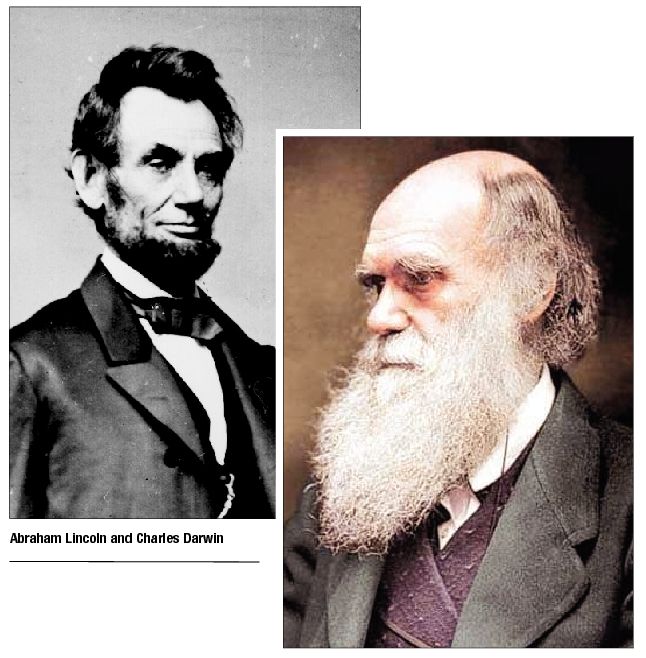Lincoln and Darwin, born on the same day 
BOOK REVIEW | Julie Cellini

Fans of fanciful, history-inspired books like Abraham Lincoln, Vampire Hunter will surely find Lincoln and Darwin – Shared Visions of Race, Science and Religion a tough slog through the mid-19th century. This book seriously searches for, and finds, common ground for two intellectual giants, separated by an ocean, who never even met. But once you’re in to Lincoln and Darwin, well, you’re into it. At least I was.
Author James Lander teaches history at TASIS American School in England. His previ ous books include one on Roman stone fortifications. Still he manages, at times, to get into the heads and even the hearts of Lincoln the politician and Darwin the scientist, making the issues of race and humanitarian sensibility accessible and moving.
Born on separate continents on the same day, Feb. 12, 1809, Charles Darwin and Abraham Lincoln had little in common in their childhoods except prodigious intellect and overbearing fathers. For Darwin’s father, his son was never educated enough. For Thomas Lincoln, it was the opposite.
So Lander sets the stage by introducing each man as an underachiever on the eve of his 50th birthday, saying “each understood that following his own demise and that of family and friends, he would be largely forgotten. It was a fate both men fought against, and, as it happened, within two years both achieved lasting fame.”
How they achieved it is the framework for two fascinating, parallel accounts of two nearmythic men. The shared time period and extraordinary qualities of each man provide the common thread for this uncommon book.
One account traces Darwin’s quest to publish The Origin of Species of Natural Selection. It’s the result of his two decades of far-reaching and contentious scientific research into how our species came into existence. The term most often associated with his name is “evolution,” although there’s no evidence he ever used it. The other account is much closer to home — about how Lincoln rose from poverty to the presidency of a nation falling into civil war.
Lander succeeds in bringing them together, saying both have earned their iconic status as products of their times who actually changed their worlds, upending realities that were taken for granted when they were born.
Both men’s families appear to have been deeply committed to the abolition of slavery – but that’s about all their early years had in common.
Lincoln was born when slavery was still accepted, on both sides of the Mason-Dixon Line. He was raised in the then western wilderness, close to nature in a life of back-breaking manual labor where people struggled just to survive. While in Darwin’s privileged purview, nature was landscaped, with green houses and orchards studding the English countryside. Although officially abolished, slavery was still thriving in the English colonies.
Darwin started out as a wealthy naturalist, collecting beetles and rocks and keeping copious notes of his observations and theories. He toyed with the idea of becoming a clergyman or a physician. Against his father’s wishes, he signed
on for five years aboard a sailing ship to South America, Australia and the Cape Verde Islands where he honed his scientific skills and came home with the research he needed to develop and write the theory of natural selection.
Lincoln, of course, was self taught, having less than a year of actual schooling. Yet he managed to turn himself into one of the best writers and leaders our country has ever produced.
Lander’s book seeks to tell their stories by casting each as a trailblazer who “led their societies toward greater freedom of thought and a greater acceptance of human equality.” Today it’s still an ongoing struggle. But after 200 years, it’s still worth reading about.